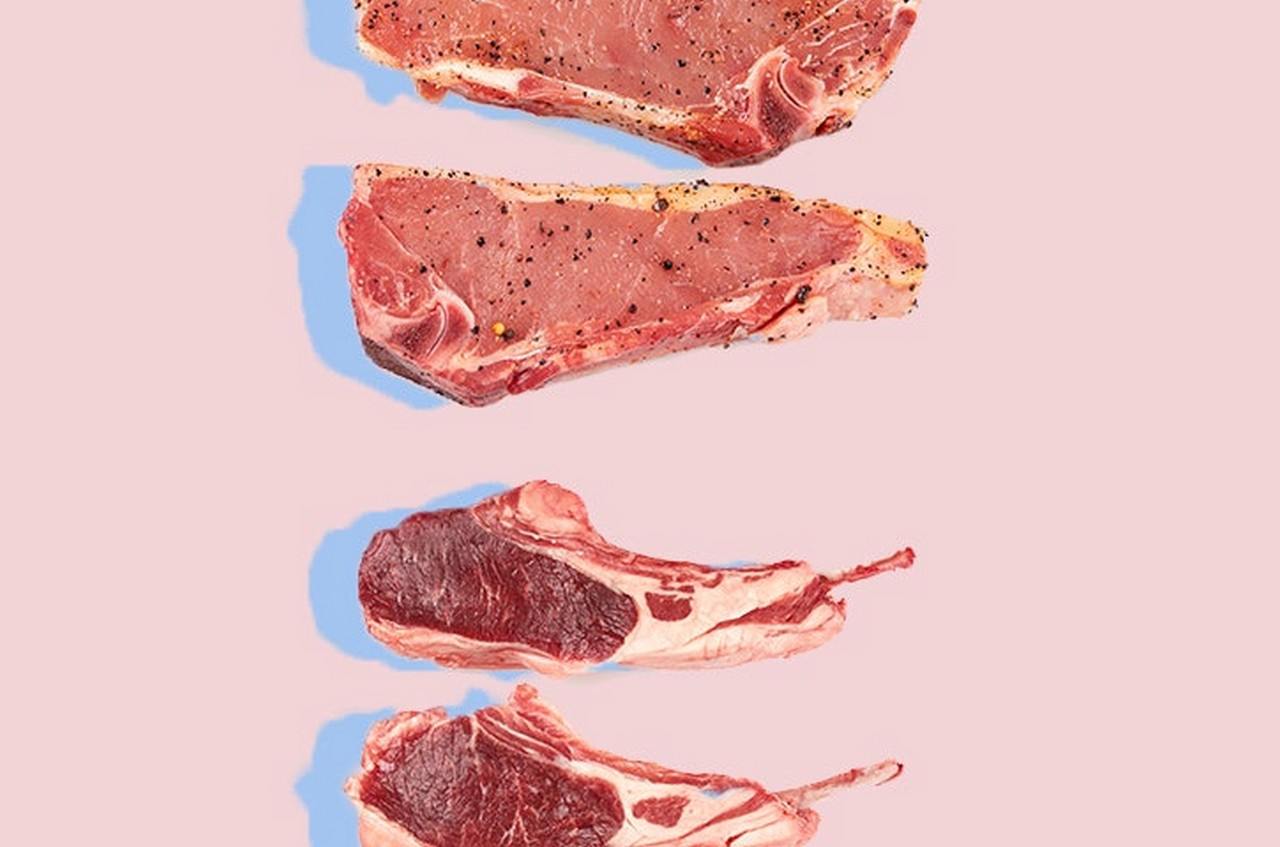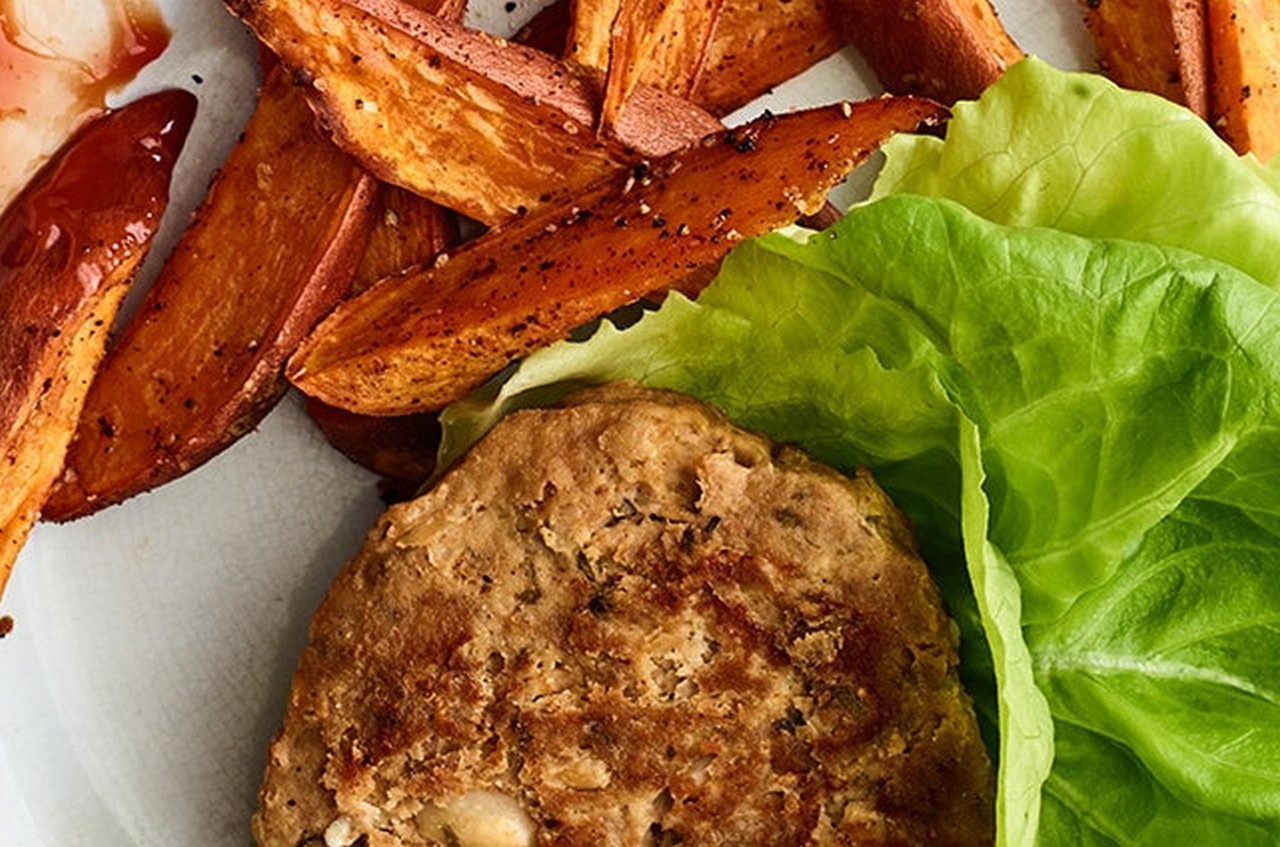
Could you eat nothing but steak and eggs for the rest of your life? That’s what’s on the menu for the latest fad, the carnivore diet, also called zero carb. Keto diet? That’s so 2017.
On the carnivore diet—also sometimes called zero carb—you can eat animal products only. So, no vegetables, fruit, grains, legumes, nuts, seeds, or any starches. Dairy products are allowed, but some carnivore dieters avoid them because lactose is a sugar. The definition used by the subreddit r/zerocarb, a 49,000-member community says it all: “We only eat meat and animal products. We do not consume plants for nutrients or calories. Some animal products contain carbs (e.g. dairy), most of those are acceptable.”
It’s been in the news lately because of some high-profile adherents, like Canadian psychologist Jordan Peterson and his daughter, Mikhaila, who credits her carnivore diet with remission from her arthritis, depression, and “a plethora of other symptoms.” Dr. Shawn Baker, a California-based orthopedic surgeon whose license to practice medicine in New Mexico was revoked in 2017, is perhaps the most high-profile carnivore diet promoter. His forthcoming book on the diet claims that common diseases “that are often thought to be lifelong and progressive are often reversed on this diet.”
Of course it’s not possible to say that all carnivore diet proponents do it for the same reasons or believe in the same things, but broadly speaking, carnivore diet enthusiasts believe the diet will be beneficial for any or all of the following: weight loss, digestion, testosterone levels, cardiovascular health, curing/reversing disease, mood, and energy levels. None of these claims have been proven or shown through studies or research.
In terms of diets overall, I’m open to the fact that different ways of eating work for different people. I can’t, however, get behind mono-diets or the claims that many proponents of the carnivore diet are making.
Like many fad diets, the carnivore diet is a belief system, not a science-backed diet.
And while I’ve seen a lot of extreme diets come and go, this one is pretty radical. Its proponents’ demonization of carbs, gluten, grains, and legumes is truly at a whole new level, despite the fact that the diet has yet to be studied, so there’s no research supporting those claims. Many believe that grains, legumes, and seeds contain “antinutrients” and that fruit and other carbs are toxic. Because there’s no science to support those claims (in fact, in the case of antinutrients, the science is that they’re not harmful), all the “evidence” that the diet works comes from personal anecdotes. But anecdotes don’t prove whether or not a diet is legit.
Here’s why an all-meat diet is a bad idea.
We have no evidence that it’s actually good for your health.
Meat is pure protein and fat. You’ll frequently see people who cut certain food types out of their diet use the argument that “You don’t need X to live,” X being plants, dairy, whatever. This may be true—we don’t need plants to exist, but their phytochemicals, nutrients, and fiber are beneficial to our health. Some plant foods do have antinutrients in them, but most are destroyed by cooking or by our digestive enzymes. To say that these plant compounds are dangerous is false. In fact, in my field, it’s a widely accepted fact that plant foods are great for you.
Saturated fats—while not the culprit we once believed—have not been vindicated entirely when it comes to cardiovascular disease risk. Different people react differently to saturated fats—some people’s cholesterol rises higher and faster than others on a diet high in saturated fat. Just because a carnivore dieter’s cholesterol doesn’t seem any worse for the wear on their all-meat diet, it doesn’t mean that the diet is harmless to our health. Again, there have been zero long-term studies done on this diet.
It might not be good for your mental health either.
As much as a meat-only diet hasn’t been shown to be physically healthy, I think the psychological reasons to avoid a restrictive diet like this one might be even more compelling. I’ve seen people boast online about, for example, how many steaks they eat in a day, without ever getting bored of this diet. And while that may or may not be true for those individuals, it’s not a good reason for everyone to adopt this way of eating. Not even close.
Most people’s lifestyles, social lives, traditions, and preferences make it difficult to follow a restrictive diet. Adhering to a diet such as this one would likely require an amount of restriction, control, and rigidity that can lead to disordered eating behavior and a distorted attitude towards foods that have never been proven to be harmful (like vegetables). The effect of that can be detrimental—deprivation, dissatisfaction with food, and social isolation.
For most people, healthy eating isn’t about hyper focusing on a single food group. It’s about eating a diverse diet of wholesome foods.
Of course, as I mentioned, some people might be more sensitive to saturated fats than others. Different macronutrient ratios may affect different people in different ways. There is no reason to believe (or evidence to prove) that any one way of eating is best for everyone. Having said that, there are many reasons to believe, and lots of evidence showing, that eating a diet made up of mostly minimally processed or unprocessed foods is nutritious, wholesome, and satisfying, and that the best outcomes for any eating plan come from adherence to and enjoyment of the way you’re eating.
It’s always a good idea to examine any science (or lack thereof) behind a diet that you’re thinking of trying. Food can most definitely affect health, but we should always cast a critical eye on any claims of a diet “curing” conditions that are typically thought of by the vast majority of experts to be incurable or treatable only with medicine. Never discontinue medications or ignore medical recommendations in favor of food-based treatments.














